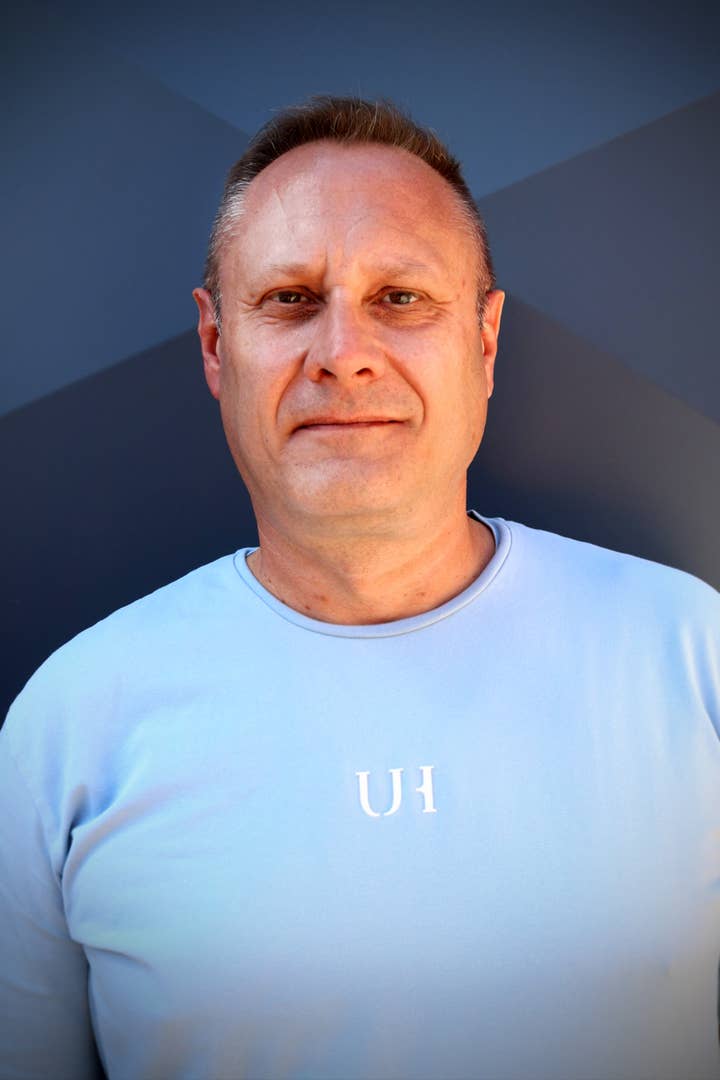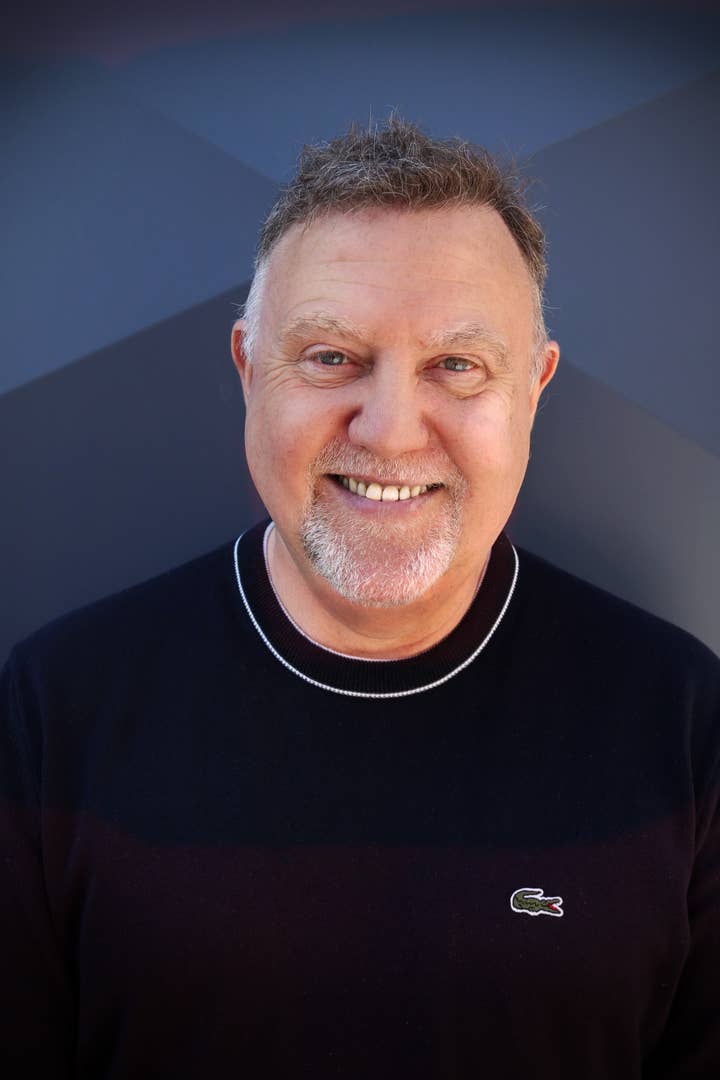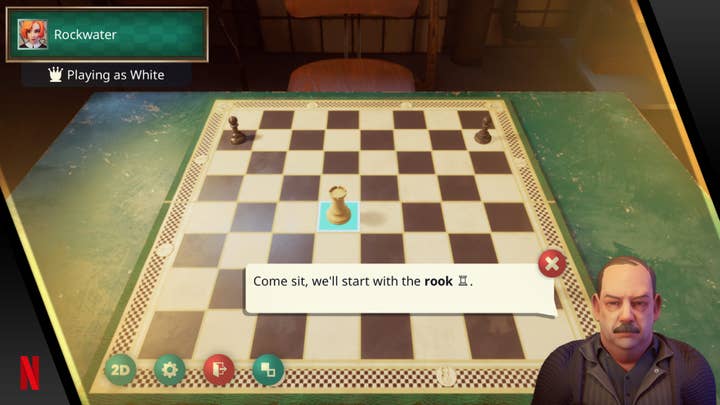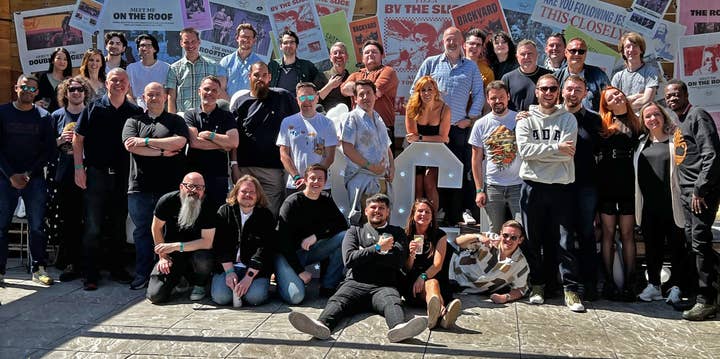How Ripstone is thriving as an independent publisher by not growing too fast
The firm's leaders reflect on their journey from the early development scene of Liverpool to a partnership with Netflix
A significant part of Liverpool’s games industry can be traced back to Psygnosis, which made its name with publishing titles like Shadow of the Beast and Lemmings before it became a subsidiary of the newly-formed Sony Computer Entertainment in 1993. Its new parent helped make it an international player, with the studio's Wipeout being one of the early killer apps for the original PlayStation.
Even after the subsidiary was renamed Studio Liverpool in 1999 and Sony XDev was also formed in the same site in 2000, you could still find traces of the Psygnosis around the offices that no one had bothered to remove.

That’s one little tidbit that Ripstone’s co-founder and creative director Phil Gaskell shares during a media visit of the Liverpool-based studio in the city’s start-up district, known as the Baltic Triangle, located just above a trendy arts bar. Having started his career at PlayStation and Psygnosis in the late '90s before rejoining as a producer at XDev, he’s very much part of that Psygnosis heritage, as is fellow co-founder and Ripstone’s managing director Leo Cubbin.
"It was a watercooler moment – well, a copy machine moment to be exact – when we both got chatting and both had the same desire to set something up," Gaskell explains. "I'd worked quite extensively in digital distribution, working on a lot of PSN games. Leo had just finished up as the external producer for LittleBigPlanet 2, which was very much about creative content being uploaded and shared digitally. So we hatched a plan to set up as a publisher, and I wrote the business plan when I went away on paternity with my second child."
Founding Ripstone in 2011 turned out to be good foresight when Sony announced the closure of Studio Liverpool the following year, which also saw former employees spin off into smaller studios, including mobile studio Playrise Digital and VR studio Firesprite, the latter of which was acquired by Sony and developed PlayStation VR2 launch title Horizon Call of the Mountain. Incidentally, another Sony acquisition is Destruction All Stars developer Lucid Games, just a few doors down from Ripstone.
"We've been lucky, we've watched the industry rise and fall, and rise and fall," says Gaskell. "We’ve seen studios start up and disappear, or friends getting acquired then shutting, and I think that’s always been the games industry in Liverpool."
So how has Ripstone endured for over a decade? One advantage has been by maintaining its independence, which is emblematic of what was originally envisioned as a "punk attitude" to its business model – although at first glance that might not reflect a company best known for publishing Chess Ultra, and whose latest title is a partnership with Netflix, The Queen’s Gambit Chess.
But even with an opportunity to work with a streaming giant on a huge licence, Cubbin reiterates the studio isn't banking solely on this project. "Working for and with Netflix has been great, but we’re not totally reliant on them, which I think is healthy."
"We're making games, which should be fun. If it's not fun, you're doing something wrong"
Leo Cubbin, Ripstone
The Queen’s Gambit Chess also serves as a coming out party for Rockwater Games, Ripstone’s internal development team. The team itself had actually formed around five years ago, initially to support the existing games the company had already published but it’s now equipped to fully develop its own titles.
"It’s important that [Rockwater] has an identity, it’s too easy for it to get lost inside Ripstone's publishing side," Gaskell explains. "But while Ripstone can publish Rockwater games, I want them to feel that if their ambition is greater, they can go somewhere else for some other publisher to publish their games as well."

Those ambitions may still be far off, as growth is something the company is keen not to rush, although it also has another team based in Birmingham under the name MagmaWorks. Just counting the Liverpool studio, Ripstone’s headcount is around 40, with around 30 of those at Rockwater.
"That's always been my concern. I think it's too easy to swell the ranks, lose your culture, maybe lose sight of what you're trying to do," Gaskell adds. Which leads to the question, how does Ripstone define culture? "Well, we’re not dicks," the co-founder says.
He elaborates that studio culture involves more than free sandwiches, although the company certainly does provide important benefits, including a company psychologist that staff can book a session with at any time to discuss anything in confidence.
"One of the things we've tried to do is trying to achieve radical candour, the ability for us to know each other intimately enough that we can be really brutally honest without upsetting anyone," Gaskell continues. "But you've got to socialise with each other, you've got to celebrate the failures and the wins and really bond before you can get to that stage."
"What happens is companies get to a size where you can't do that, and it's impossible to know everybody," adds Cubbin, while also highlighting how the company heads sit in the same space as the rest of Rockwater’s programming, design, art, and QA staff. "That's what we've always been cautious about because there's ways to grow without growing, and you get to a stage where you're like, 'Who's he? Does he work for us?'"

It also comes from experience, as Gaskell shares anecdotes of 100-hour weeks at the development coalface, including one time a manager had gathered the team to comment on how his wife would have left him if he worked as hard as them before asking who was okay to work the weekend. In other words, there’s been a lot of learning experience in how not to do things, and to do it better, which he, Cubbin, and Ripstone’s finance director Amy Wall had all worked together in building the kind of studio culture they wanted to see. This has also been reflected in the company being awarded GamesIndustry.biz’s Best Places to Work two years in a row.
"I think anyone can throw money at staff, but I think what we do well here at Ripstone is we are authentic, and we are genuine," says Wall. "By growing organically, we've maintained that culture. We know where we’re heading and don’t get hung up with what other people are doing, but we can be quick and nimble if we do need to adjust our sails and adjust our journey to get to where we want to go."
The Queen’s Gambit Chess and the Netflix partnership is undoubtedly a milestone for Ripstone but it’s not something that Cubbin expects will change how the studio works in the long-term future.
"We've both been victims of working in a company that swelled to a massive size that then lays everyone off, and we never wanted to do that," he says. "The thing is we're making games, which should be fun. If it's not fun, you're doing something wrong."
Sign up for the GI Daily here to get the biggest news straight to your inbox









